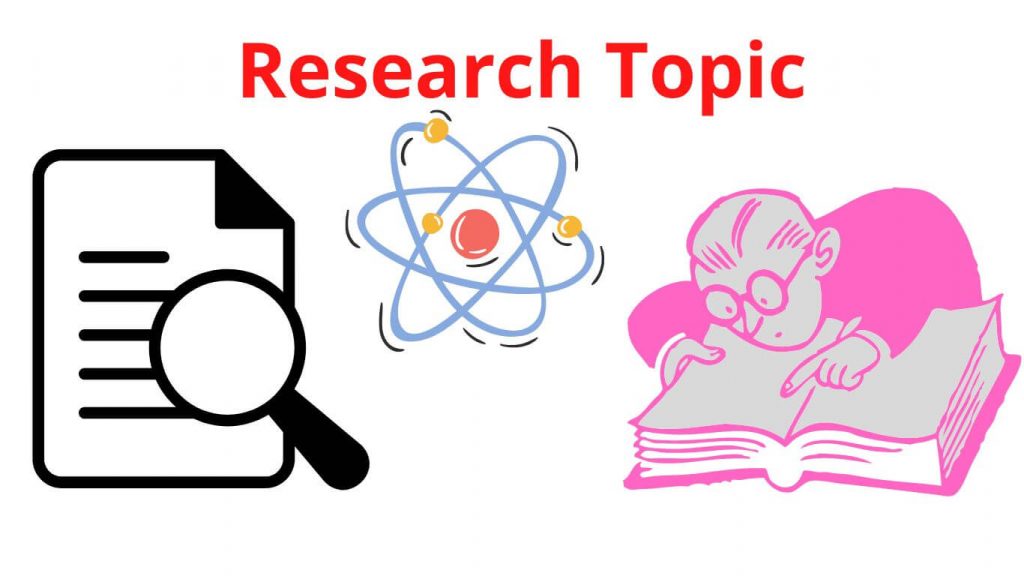AI has become an increasingly important tool in language learning, as it can provide a more personalized and efficient learning experience. AI can be used to create personalized learning plans, provide feedback on student performance, and even generate personalized content. This article will explore the best topics for investigation of AI into language learning, including natural language processing, machine translation, and automated assessment. We will also discuss the potential benefits and challenges of using AI in language learning, as well as the ethical considerations that must be taken into account. Finally, we will provide some examples of successful AI-based language learning initiatives.
Exploring the Potential of AI-Powered Language Learning Platforms
The potential of artificial intelligence (AI) to revolutionize language learning is immense. AI-powered language learning platforms are becoming increasingly popular, offering learners the opportunity to learn a language in an interactive and personalized way. This paper will explore the potential of AI-powered language learning platforms, focusing on the advantages they offer to language learners.
One of the main advantages of AI-powered language learning platforms is their ability to provide personalized learning experiences. AI-powered language learning platforms use algorithms to analyze a learner’s language proficiency level and create a tailored learning plan that is tailored to their individual needs. This allows learners to focus on the areas they need to improve and progress at their own pace. Additionally, AI-powered language learning platforms can provide learners with feedback on their progress, allowing them to track their progress and adjust their learning plan accordingly.
Another advantage of AI-powered language learning platforms is their ability to provide interactive learning experiences. AI-powered language learning platforms use natural language processing (NLP) to create interactive conversations with learners. This allows learners to practice their language skills in a realistic environment and receive feedback on their performance. Additionally, AI-powered language learning platforms can provide learners with personalized recommendations for further learning materials, allowing them to further their language learning journey.
Finally, AI-powered language learning platforms can provide learners with access to a wide range of learning materials. AI-powered language learning platforms can provide learners with access to a variety of audio, video, and text-based materials, allowing them to learn in a variety of ways. Additionally, AI-powered language learning platforms can provide learners with access to a variety of language-specific resources, such as dictionaries, grammar guides, and pronunciation guides.
In conclusion, AI-powered language learning platforms offer a range of advantages to language learners. They provide personalized learning experiences, interactive learning experiences, and access to a wide range of learning materials. As AI-powered language learning platforms continue to evolve, they will become increasingly popular and offer learners the opportunity to learn a language in an effective and efficient way.
Investigating the Impact of AI on Language Learning Outcomes
The use of artificial intelligence (AI) in language learning has been a topic of increasing interest in recent years. This paper seeks to investigate the impact of AI on language learning outcomes. To this end, a review of the literature was conducted to identify relevant studies and to assess the current state of knowledge on the subject.
The literature review revealed that AI has been used in language learning in a variety of ways, including automated language assessment, automated language tutoring, and automated language generation. Studies have shown that AI can be used to improve language learning outcomes, particularly in terms of accuracy and fluency. AI-based language learning systems have been found to be effective in providing personalized feedback and guidance to learners, as well as in providing automated assessment of language proficiency.
However, the literature also revealed that the impact of AI on language learning outcomes is still not fully understood. Further research is needed to better understand the potential of AI in language learning, as well as to identify the most effective ways of using AI in language learning. Additionally, research is needed to assess the impact of AI on language learning outcomes in different contexts, such as in different language learning environments and with different types of learners.
In conclusion, AI has the potential to improve language learning outcomes, but further research is needed to better understand the impact of AI on language learning outcomes. This research could provide valuable insights into the potential of AI in language learning, as well as into the most effective ways of using AI in language learning.
Examining the Benefits of AI-Assisted Language Learning
The use of artificial intelligence (AI) in language learning has been gaining traction in recent years, as AI-assisted language learning (AALL) has been shown to be an effective and efficient way to learn a language. This paper will examine the benefits of AALL, focusing on the advantages it offers to language learners.
One of the primary benefits of AALL is its ability to provide personalized instruction. AI-assisted language learning systems are able to tailor instruction to the individual learner, providing them with content that is tailored to their specific needs and abilities. This allows learners to focus on the areas they need to work on the most, and to progress at their own pace. Additionally, AI-assisted language learning systems can provide feedback and guidance in real-time, allowing learners to make corrections and adjustments as they go.
Another benefit of AALL is its ability to provide a more engaging learning experience. AI-assisted language learning systems can use interactive elements such as games and simulations to make learning more enjoyable and engaging. This can help to keep learners motivated and engaged, and can help to make the learning process more enjoyable.
Finally, AALL can provide learners with access to a wide range of resources. AI-assisted language learning systems can provide learners with access to a variety of resources, such as audio and video recordings, online dictionaries, and other materials. This can help to make the learning process more efficient and effective, as learners can access the resources they need quickly and easily.
In conclusion, AI-assisted language learning offers a number of benefits to language learners. It can provide personalized instruction, an engaging learning experience, and access to a wide range of resources. As such, AALL is an effective and efficient way to learn a language, and is likely to become increasingly popular in the years to come.
Analyzing the Role of AI in Automating Language Learning Processes
The use of Artificial Intelligence (AI) in language learning has been gaining traction in recent years, as AI-based technologies have become increasingly sophisticated and accessible. AI has the potential to revolutionize the language learning process by automating many of the tedious and time-consuming tasks associated with language acquisition. This paper will analyze the role of AI in automating language learning processes, focusing on the potential benefits and drawbacks of AI-based language learning systems.
One of the primary advantages of AI-based language learning systems is their ability to provide personalized instruction. AI-based systems can analyze a learner’s language proficiency level and tailor instruction accordingly. This allows learners to receive instruction that is tailored to their individual needs, rather than relying on a one-size-fits-all approach. Additionally, AI-based systems can provide feedback in real-time, allowing learners to quickly identify and address any errors they may be making.
Another benefit of AI-based language learning systems is their ability to provide a more engaging learning experience. AI-based systems can use natural language processing to generate interactive conversations with learners, allowing them to practice their language skills in a more natural setting. Additionally, AI-based systems can use machine learning algorithms to generate personalized content, such as stories and dialogues, that are tailored to the learner’s interests and language proficiency level.
However, there are also some potential drawbacks to AI-based language learning systems. One of the primary concerns is the potential for AI-based systems to be biased. AI-based systems are only as good as the data they are trained on, and if the data is biased, then the system will be as well. Additionally, AI-based systems can be expensive to develop and maintain, and may not be accessible to all learners.
In conclusion, AI-based language learning systems have the potential to revolutionize the language learning process by providing personalized instruction and a more engaging learning experience. However, there are also some potential drawbacks to AI-based systems, such as the potential for bias and the cost of development and maintenance. As AI-based technologies continue to evolve, it is important to consider both the potential benefits and drawbacks of AI-based language learning systems.
Investigating the Use of AI for Personalized Language Learning Experiences
The use of artificial intelligence (AI) for personalized language learning experiences has been gaining traction in recent years. AI-based language learning systems are designed to provide learners with tailored instruction and feedback, allowing them to progress at their own pace and focus on areas of difficulty. This paper will explore the potential of AI for personalized language learning experiences, including its advantages and disadvantages.
The primary advantage of AI-based language learning systems is that they can provide personalized instruction and feedback. By leveraging AI algorithms, these systems can analyze a learner’s progress and provide tailored instruction and feedback based on their individual needs. This allows learners to focus on areas of difficulty and progress at their own pace. Additionally, AI-based language learning systems can provide learners with a more engaging and interactive learning experience. By incorporating elements such as gamification and virtual reality, these systems can make language learning more enjoyable and engaging.
However, there are also some potential drawbacks to using AI for personalized language learning experiences. One of the primary concerns is that AI-based language learning systems may not be able to accurately assess a learner’s progress. Without accurate assessment, the tailored instruction and feedback provided by these systems may not be effective. Additionally, AI-based language learning systems may not be able to provide learners with the same level of support as a human instructor. Finally, AI-based language learning systems may be expensive to develop and maintain.
In conclusion, AI-based language learning systems have the potential to provide learners with personalized instruction and feedback, allowing them to progress at their own pace and focus on areas of difficulty. However, there are also some potential drawbacks to using AI for personalized language learning experiences, including the potential for inaccurate assessment and the cost of development and maintenance. Further research is needed to determine the effectiveness of AI-based language learning systems and to identify potential solutions to the drawbacks.
Conclusion
In conclusion, AI has the potential to revolutionize language learning by providing personalized, adaptive, and efficient learning experiences. AI can be used to create intelligent tutoring systems, automated language assessment tools, and natural language processing applications. AI can also be used to develop intelligent language learning tools such as automated language translation, automated language generation, and automated language understanding.
AI has the potential to revolutionize language learning by providing personalized, adaptive, and efficient learning experiences. The best topics for investigation of AI into language learning include intelligent tutoring systems, automated language assessment tools, natural language processing applications, automated language translation, automated language generation, and automated language understanding. With the right research and development, AI can be used to create powerful and effective language learning tools that can help.
Do you wanna discuss this issue? or ask a question? any question!
[wpaicg_chatgpt]



